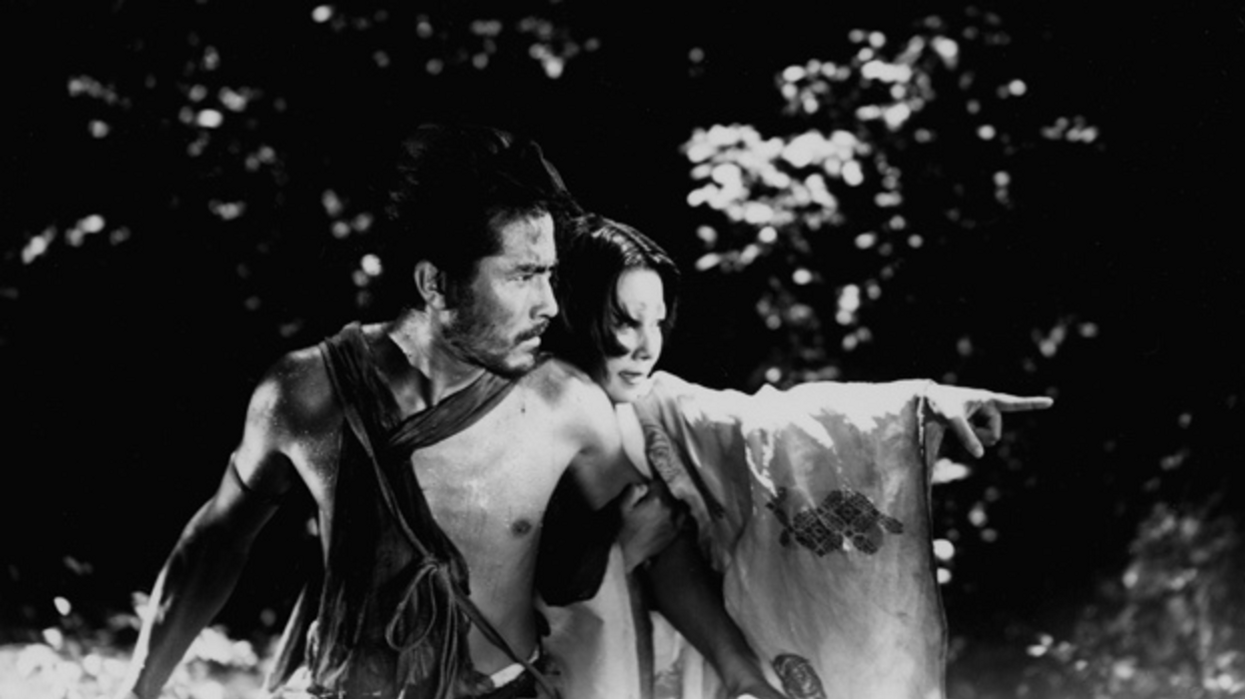Akira Kurosawa's Singular Advice for Aspiring Filmmakers
Here's the one thing Kurosawa wants you to know.

With 66 awards won and 21 nominations to his name, Akira Kurosawa is a staple in film studies programs and one of the most influential filmmakers of his time. In previous NFS articles, we've covered the prolific director's use of color, and other techniques he employed to create beautiful movies. His films—arguably some of the best of all time like Rashomon, Seven Samurai, and High and Low—are studied in-depth for their innovations in the craft of filmmaking and for their strong and compelling stories. He gave his best piece of advice for aspiring filmmakers in this recently unearthed interview:
So what is his most important advice? After 75 writing credits, he seems more than justified in offering these words: It’s only through writing scripts that you learn specifics about the structure of film and what cinema is.
Kurosawa added that he often gives this advice to aspiring filmmakers, “but they still won’t write.” We can relate. How many times have you been told something that was good for you, like eating your veggies, but you just never did it? Many times.
"The most essential thing is to have patience, to write one word at a time." —Akira Kurosawa
The fact of the matter here is that writing is difficult. Many of us fear the blank page or, as we write, we criticize every word that comes out. The goal isn’t to aim for perfection in the first draft, but to get it out. Developing a consistent writing habit will help you improve your skills. The only way to tell the story is to first put it on paper. Eventually, you will transfer it to the screen with your skills, talents, crew, and a little bit of luck.

Who else agrees with Kurosawa's views on writing? Alfred Hitchcock, for one, with his famous quote: To make a great film you need three things—the script, the script, and the script. Of course, many other well-known directors write and film their own movies. To name a few:
- Wong Kar-Wai: In the Mood for Love, The GrandMaster
- Woody Allen: Annie Hall, Midnight in Paris
- M. Night Shyamalan: The Sixth Sense, Split.
- Quentin Tarantino: Pulp Fiction, Inglorious Basterds
The list goes on. And guess what? You can be on that list, too. But to do so, you must write. Kurosawa gives us one more golden nugget to get you started: The most essential thing is to have patience, to write one word at a time, until you reach the required length.
In the end, the biggest takeaway is to write, write, and keep on writing.
What's the best piece of Kurosawa advice you've heard? And who's your favorite writer/director? Let us know in the comments.
Romel Rodriguez is No Film School's Social Media & Production Intern while he works toward his degree in Film and Video Production at the City College of New York.












